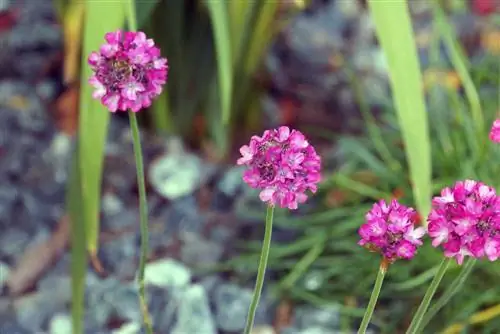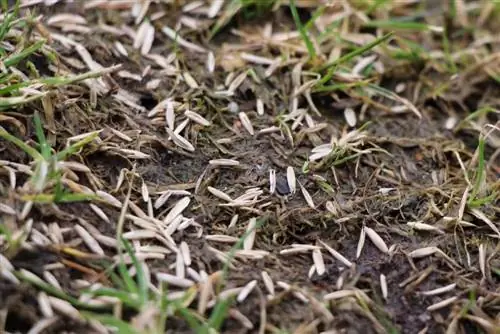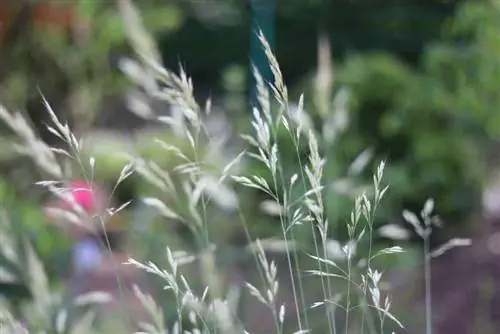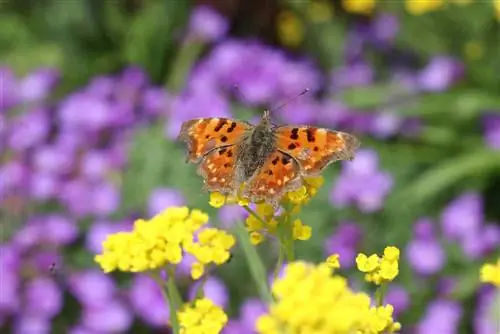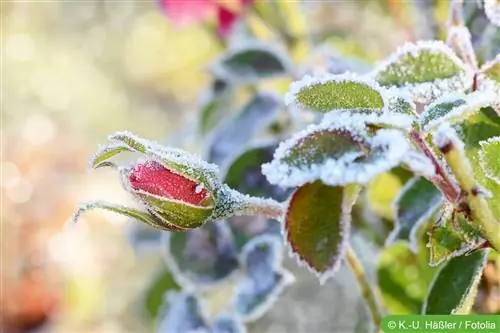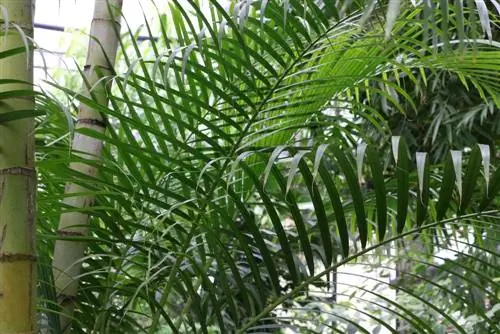- Author admin [email protected].
- Public 2023-12-17 03:39.
- Last modified 2025-01-24 12:45.
Creative garden art cannot do without floral treasures, which cover the bed with a carpet of flowers in full sun, regardless of the poor, sandy-dry soil. In this respect, the common grass has acquired cult status for the colorful greening of rock gardens, rocky steppes, dry stone walls and heathland areas. The permanent summer bloomers have made a name for themselves as a reliable edging plant for graves without shade. Get to know a selection of the most beautiful armeria varieties here. A tried-and-tested care guide explains how to skilfully care for the small perennial. Well-founded information about winter hardiness and toxicity leaves no questions unanswered.
Beautiful and proven varieties
Among the more than 50 species of armeria, the sea thrush (Armeria maritima) and the alpine thrush (Armeria alpina) and their subspecies were the inspiration for some of the most beautiful varieties. The following selection introduces you to successful hybrids for beds and containers:
Düsseldorfer Stolz
The premium variety impresses with countless, violet-red flower heads, whose radiance has an unmistakable long-distance effect. From late spring until well into summer, the pretty perennial adorns the gravel bed, the heather garden or is used as a border plant in the cottage garden.
- Growth height: 10 to 20 cm
- Flowering period: May to July
Spring Magic
Their purple-pink flowers keep what the name promises. The spherical heads attract attention in all sunny and dry locations without stealing the show from the leading perennials. This variety comes into its own particularly well in small tuffs with 3 to 5 specimens. Since it grows a little higher than other varieties, it also likes to appear as a solitary plant in small front gardens.
- Growth height: 15 to 25 cm
- Flowering period: May to July
Alba
The white-flowering sea thrush is available with dense carpets of flowers wherever it is dry, lean and sunny. The perennial is perfect for gardens near the coast, as s alty air does not detract from its beauty. Combined with the colorful flowers of 'Düsseldorfer Stolz' and 'Spring Magic', 'Alba' draws impressive garden pictures.
- Growth height: 10 to 15 cm
- Flowering period: May to July/August
Flowers
With the delicate, delicate pink flowers of this dwarf carnation, floral grace finds its way into the summer garden. Delicate, strong green leaves underline the magic of the flowers and last throughout the winter. Whether in the rock garden, on the dry stone wall or in the bowl in the cemetery; There is a spot available everywhere for the little summer beauty, as long as it is in the sun.
- Growth height: 5 to 10 cm
- Flowering period: May to July
Vesuvius
If a carpet of flowers with bright red flower balls spreads out in the rock garden from May to summer, the Vesuvius carnation varieties have gained a foothold here. Its cushion-shaped growth qualifies the upright flower stalks making the plant the ideal ground cover for sunny, sandy-dry locations.
- Growth height: 10 to 15 cm
- Flowering period: May to August
Morning Star Deep Rose
If you don't want to wait until May, this early-flowering variety is exactly the right choice. While other carnations are still in the starting blocks, this Armeria maritima is already providing floral moments of happiness in the bed and on the balcony.
- Growth height: 15 cm
- Flowering period: April to May
Tip:
By combining early and later flowering thrush varieties, the flowering time is extended by at least 4 weeks.
Morning Star White
The white-flowering counterpart to Deep Rose creates a contrasting look in the spring garden if you arrange both varieties in mixed tuffs of up to 10 specimens. With their simple flowers, the thrushes are also a sought-after source of food for busy bees, bumblebees and butterflies so early in the year.
- Growth height: 15 cm
- Flowering period: April to May
Care instructions
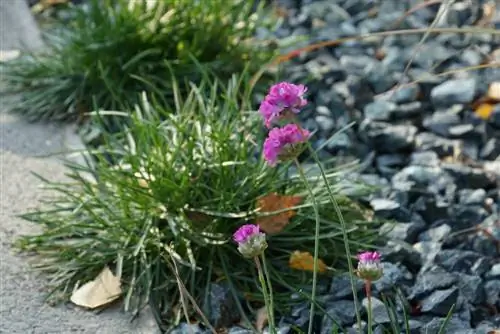
Thanks to the magnificent carnations, a spring and summer garden rich in flowers does not require extensive and time-consuming maintenance work. If you take the following measures to heart, the decorative flower show will repeat itself every year.
Location
The sunnier the location, the more the carnation enchants us with its graceful and fragrant play of colors. In partially shaded or even shady locations, it likes to give way to other garden perennials. Armeria have no objection to airy to windy places, as the perennial cradle of numerous species was located near the coast. Their flower stems are so sturdy that even a strong gust of wind cannot harm them.
Soil and substrate
A location in full sun alone is not enough to keep the sea carnation happy. Only in combination with the appropriate soil conditions does the perennial show its most beautiful side. These quality features characterize the ideal soil:
- Sandy-loamy and well-drained
- Dry to slightly fresh
- Ideally with a pH value between 5 and 7
- In the pot and flower box a mix of ericaceous soil and sand
Where the soil meets the requirements in sunny locations, simply improve it with additives. A clay-based soil is optimized with sand and fine grit. In lime-rich soil with a pH value greater than 8, adding peat or ericaceous soil ensures balance.
propagation by sowing
Vital germination of the seeds, coupled with rapid growth of the seedlings, enable uncomplicated cultivation behind glass. Theoretically, direct sowing from March/April is conceivable. However, this option is associated with a high risk of failure, which is reduced by protecting the window sill. How to grow cloves yourself from seeds:
- Fill a mix of coconut fiber substrate and sand into peat press pots
- Spread the fine seeds and press them down
- Do not sieve over with sand or substrate to a maximum of 0.5 cm high
- Moisten with a fine shower of soft water
Germination takes between 2 and 3 weeks at normal room temperatures in a bright, not full-sun window seat. Growing in peat press pots has the advantage that you can plant the young plants in the bed or pot without prior pricking. If the planting takes place by autumn, you can look forward to the first flowers next spring.
Plants
Cloves can be planted throughout the growing season as long as the ground is not frozen. The best time to plant these hardy perennials is in the fall, which gives them a significant head start in growth for the next year. Soak the still-potted root balls in water while you prepare the soil or substrate.
As a starter fertilizer, add some compost and horn shavings to the soil. A planting distance of 20 to 25 cm is recommended in the bed, which can be shortened by 5 to 10 cm in planters. Harmful waterlogging in pots and balcony boxes is avoided with drainage made of pottery shards, grit or expanded clay. Regular watering in the first days and weeks after planting ensures that the young armeria take root quickly.
Pouring
The interval at which you water cloves depends on several factors. Experience has shown that the natural rainfall in the bed covers the water requirement. During dry, hot summer days, water the flowers in the early morning or evening. The higher the mineral content in the soil, the more often watering is required.
In pots or balcony boxes, the high degree of evaporation in full sun should not be underestimated. Check here every 1 to 2 days with a finger test to see whether the soil is dry. Pour water directly from the can spout onto the root disc until the substrate at the bottom of the container is moistened. The soil should be noticeably dry again by the next watering.
Tip:
In order to stabilize the advantageous acidic to neutral pH value in the substrate, grass carnations are primarily watered with rainwater or stale tap water.
Fertilize
Carnations in the bed don't mind if they aren't fertilized regularly. On the contrary, the frugal perennials prefer poor soil. The flowers still react positively to an organic starter fertilization at the end of March/beginning of April in the form of compost with horn shavings with a lush abundance of flowers. It is recommended to repeat the nutrient supply after the remontant pruning in summer.
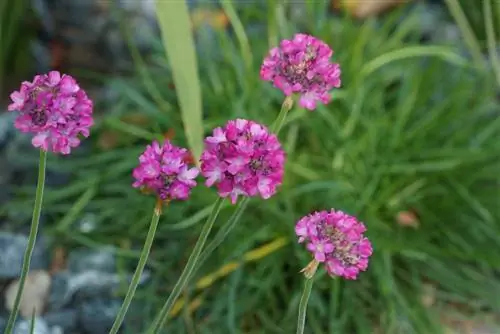
In pot cultivation, the administration of liquid fertilizer keeps growth and flowering going. Between April and July, apply a mineral-organic or purely organic fertilizer at half the concentration every 4 weeks. By watering before and after with clear, soft water, the absorption of nutrients is optimized.
Cutting
With a professional cut at the right time, grass carnations maintain their well-groomed appearance and repair reliably. It doesn't take much effort and will be rewarded with an extra long flowering period if you give the perennials this care:
- Once the first flower head has withered, cut back the grass
- Short all stems until just before the first leaves
- Do not leave the clippings lying around to prevent pests and diseases
- Fertilize bedding plants after pruning with compost and horn shavings
Throughout the winter, the gray-green foliage decorates the garden well into February. Only then will the armerias finally lose their beauty and be cut back close to the ground. This measure should be completed by the beginning of March so as not to affect the fresh shoots.
Propagate
The propagation of thrush is not limited to sowing seeds. Another option to consider is division, which involves rejuvenation of the perennial. How to do it right:
- In autumn, cut off the root ball all around with a spade
- Lift the carnation out of the ground and place it on a stable surface
- Cut into 2 or more segments with a knife or spade
A section should have at least 2 sleeping eyes so that it sprouts again. Plant the rejuvenated grass cloves in a sunny location in loose, compost-enriched soil. Press the substrate firmly with your hands and water with soft water. Although sea carnations are drought specialists, they want soil that is constantly slightly moist during this phase until the roots have established themselves in the new location.
Winter hardiness
In nurseries and garden centers, thrushes are labeled as perennials in hardiness zone Z6. This assignment implies that the plants can endure frosty temperatures of -17.8 to -23.4 degrees Celsius. For locations in Central European gardens, Armeria can therefore safely be described as hardy, with one important caveat. Wintergreen perennials in this classification still receive light winter protection in harsh regions because they are threatened by frost. Furthermore, young plants still have to develop their winter hardiness. Therefore, the following precautions are recommended:
- Cover the grass cloves in the bed in the year of planting before the onset of winter with a thick layer of leaves and brushwood
- In harsh winter areas, maintain this protection in subsequent years
- Place planters on wood and wrap with fleece
Like all wintergreen plants, thrushes continue to evaporate moisture through their leaves during the cold season. Where there is no snow or rain, please continue to water with soft water to prevent the bales from drying out.
Tip:
A pouring of potassium-rich comfrey manure in autumn underlines the winter hardiness of your thrush. Potassium strengthens cell walls and lowers the freezing point of cell water. A comparable effect is achieved with Patentkali, which is spread on the ground, incorporated and sprayed with water.
Toxicity
Although the name carnation suggests otherwise, the perennial is not a carnation. Rather, botanists classify all Armenia species as belonging to the plumbagi family (Plumbagniaceae). The sea thrush, also known as the common thrush, contains the substance plumbagin, which was used in folk medicine in ancient times. An extract from cloves was supposed to relieve epilepsy, dropsy and obesity. Since there is no scientific evidence of its effectiveness, the active ingredient is now only occasionally contained in skin creams.
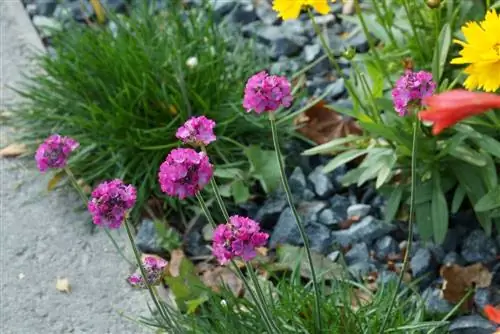
Consequently, carnations can be defined as non-toxic, so there is nothing wrong with cultivating them in the family garden. However, small children should be made aware that the spherical flowers and filigree leaves should not be eaten. The clippings are also not suitable as food for rodents.
Conclusion
Real sun worshipers for dry, poor soil are few and far between in the floral offering. The common thrush feels particularly at home in these locations and has no objection to wind and s alty air. In order to transform the bed and balcony into a summery sea of flowers with the undemanding perennial, a variety of varieties are available for a colorful design. Where the general conditions are right, the bar for the care program is set at a low level. Watering with soft water in dry conditions and organic fertilizing in April and June don't make even the beginner sweat. By cutting the perennial back to the foliage after the first bloom, you can initiate lush subsequent blooms. Despite a winter hardiness down to -23.4 degrees Celsius, the wintergreen carnation receives light winter protection before the first frost so that it is not exposed to frost. Armeria can also present their graceful beauty in the family garden as they do not contain any toxins.

